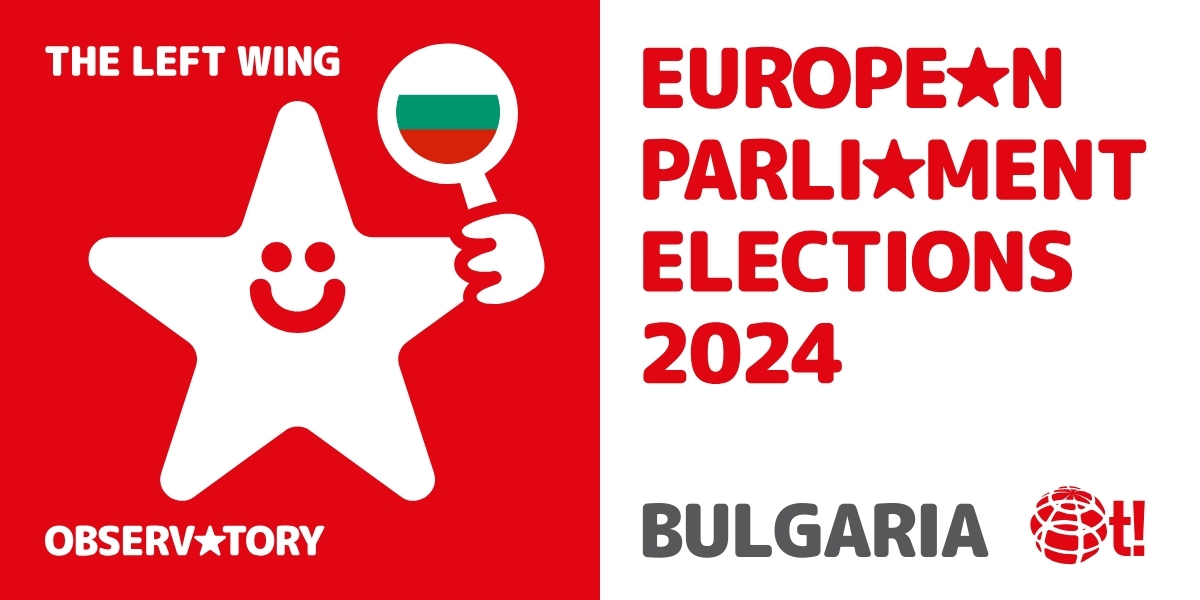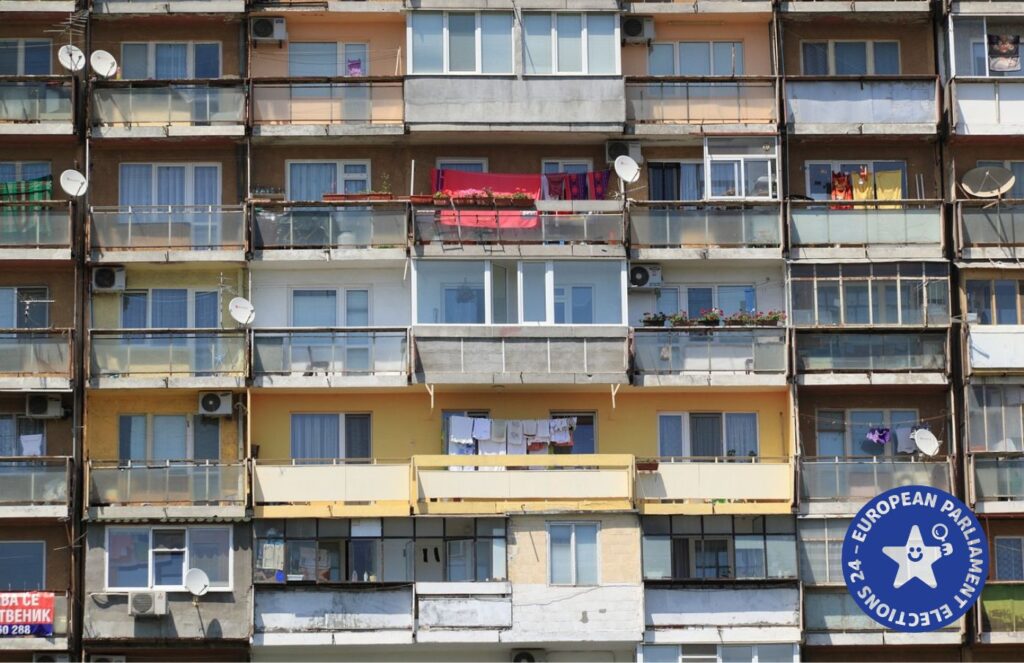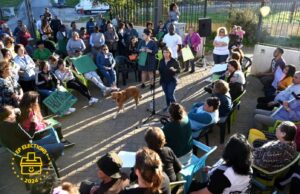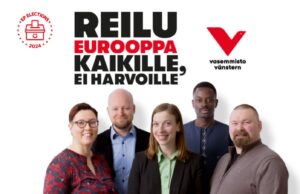
The promise of the 2020 protests – “Change” in Bulgarian society – remains, but it is to be advanced under conditions of strong vested and hegemonic interests, which hinder social transformation.
Political Dynamics in Bulgaria and Context of the 2024 European Elections
In April 2024 a caretaker government was formed in Sofia, whose main task is to organise the Bulgarian parliamentary and European elections, which are to take place on the same day – 9 June 2024. The caretaker government is led by Dimitar Glavchev as Prime Minister. In the past, Glavchev has been associated with former long-time Bulgarian PM Boyko Borissov’s party GERB (Citizens for European Development of Bulgaria, member of the European People’s Party). The remaining members of the government have different political associations. Some of them entered national politics through the liberal electoral alliance We Continue the Change – Democratic Bulgaria (PP-DB), which emphasises rapid political reforms and strong anti-corruption stances; other ministers seem to have the backing of the president Rumen Radev, who has been rallying support among the sovereigntist segments of society; a third major group of ministers appears to have alignments with other sectors of power in Bulgarian society.
The Glavchev government is just another caretaker in a series of governments since the 2020 mass anti-government protests. The period since 2020 is continuously marked by temporary equilibrium(s) between various important groups, powers, and institutions in Bulgarian society, who presumably seek this dynamic balance to be set up in accordance with what they perceive as international political winds that blow in the region and also what could be currently beneficial to the interests of citizens, economic groups and power structures. The protests of 2020 resonated with a potent anti-corruption narrative, galvanising diverse social factions – including liberals, nationalists, leftists, and various strains of populists. These groups united against what was widely perceived as a deeply entrenched culture of corruption within the upper echelons of the state, particularly targeting figures such as Boyko Borissov and the influential politician and businessman Delyan Peevski, associated with the Movement for Rights and Freedoms party. This party is the preferred choice for most Bulgarian Turkish minority citizens and is aligned with the Alliance of Liberals and Democrats in Europe. The long-term rule of Borissov who was head of three governments in the period 2009-2021 was referred to as stabilocracy by political scientists and media – an allegedly corrupt model of rule with very few possibilities for upward social mobility, low pensions or social care expenditures and one-man and single-party hegemony in politics and the state. During the 2010s such models existed in several countries in the region, such as Serbia (with Vucic) and North Macedonia (with Gruevski). In the case of Borissov this model had the important backing of Germany under Angela Merkel and Jean-Claude Juncker’s European Commission.
What happened after Borissov’s fall was the rise and, most recently, the fall of an anti-corruption techno-populist formation, called “We Continue the Change”. This party emerged as an electoral alliance in 2021 around a younger political generation of people in their late 30s and early 40s, with high levels of education, close ties to the liberal NGO sector, or with affiliation to the IT and financial industries. We Continue the Change managed to establish a four-party coalition government in December 2021 with Kiril Petkov as Prime Minister. It was a government that aimed to navigate the country’s sail in the post-Borissov era towards transition to a more dynamic society. This coalition government involved representatives of both the new and old elites, as it included not only anti-corruption formations such as We Continue the Change and Democratic Bulgaria, but also populists (“There is Such a People”) and the Bulgarian Socialist Party (the main successor of the Bulgarian Communist Party, which had ruled the country until 1989). This government lasted for about six months, until June 2022, when it lost a vote of no confidence in Parliament.
One possible perspective to understand the failure of Petkov’s government is through the prism of geopolitics – it was formed prior to the Russian full-scale invasion of Ukraine. A major foreign policy development under this government was the acceptance by both Bulgaria and North Macedonia of the so-called French proposal for conditional lifting of the Bulgarian veto on the start of North Macedonia’s negotiations for accession to the EU. On both key foreign policy issues, Russia/Ukraine and North Macedonia, there were noticeable differences among the members of the four-party coalition government.
What followed the fall of Petkov’s government was a series of caretaker governments, picked personally by Bulgarian president Rumen Radev, with Galab Donev as Prime Minister. These caretaker governments sought a closer alignment of Bulgaria with countries that strive to be a bridge between the West and the East in the Russo-Ukrainian war – Austria, Hungary, Turkey. Snap elections took place regularly with Bulgaria becoming the post-war democracy in Europe with the highest number of parliamentary elections in the shortest period. Yet, the post-Borissov political system remains too fragmented and polarised to find a new stable government formula. Most recently, following the 2023 parliamentary elections, a compromise between the anti-corruption formation We Continue the Change – Democratic Bulgaria and Boyko Borissov’s conservative populist GERB-SDS alliance took place. They agreed on a rotation government, which was to be led by Nikolay Denkov (an academic) from PP-DB for a nine-month period, followed by Mariya Gabriel from GERB (former EU commissioner) for the subsequent nine months. Both Denkov and Gabriel were intended to be their respective deputy prime ministers. Apart from Gabriel, the government included no other person from GERB-SDS.
The Denkov government aligned Bulgaria’s foreign and domestic policies closely with the European Commission’s line, even at the cost of some protests from affected groups. Internationally, Bulgaria took a strong stance of political, military, and financial support for Ukraine. Domestically, despite two weeks of protests by miners and coal-fired power plant workers, Bulgaria finally submitted its territorial plans for green transition in accordance with the Commission’s plans for a Green New Deal, becoming the last EU country to do so. The Denkov government also looked favourably on Ukrainian agricultural imports, and only after some protests by Bulgarian farmers did it alter its policy of opening to Ukrainian agricultural products by introducing some protectionist measures.
In March 2024 the government had to conduct its first round of rotation with Denkov stepping down as PM in favour of Gabriel. Yet, the negotiations between PP-DB and GERB on the rotation process and the subsequent arrangement of relations between the two government partners were not successful. As there was no other viable configuration for a potential coalition government in current Parliament, a decision has been taken to hold early parliamentary elections. The ousting of the Denkov government was followed by operations on the part of the Bulgarian secret service DANS, the Anti-Corruption Commission and the prosecution against high-ranking officials, close to We Continue the Change, who had been holding good positions in the Finance Ministry and the Interior Ministry, which also led to a sharp decline of support for this formation to around 17 per cent. Furthermore, the Green Movement – member of the European Greens and part of the Democratic Bulgaria coalition – left the We Continue the Change – Democratic Bulgaria alliance following rising tensions between both anti-corruption formations. And in the meantime, “Yes, Bulgaria” – part of Democratic Bulgaria with the strongest anti-corruption convictions among its constituent parts – declared openly its aim to affiliate itself with the European People’s Party – the same party as Boyko Borissov’s GERB.
The Campaign for EU Elections and the Level of Presence and Awareness About EU Issues
The Bulgarian political parties are contesting both the Bulgarian parliamentary elections and the European Parliament elections on June 9. However, as of now, the political broadcasts on Bulgaria’s leading TV channels are not discussing European issues at all. Instead, the Bulgarian public sphere is dominated by an intense focus on the ongoing clashes in Bulgarian politics and within the country’s security institutions.
During the Denkov government, the We Continue the Change – Democratic Bulgaria coalition talked openly about reforming the judiciary and the security services, which were seen as being under the control of opposing political forces, such as President Rumen Radev, Delyan Peevski, or Boyko Borissov. But this narrative never went deeper because Denkov’s government was a coalition with Borissov’s party and relied on GERB and often on DPS to adopt legislation in parliament. These circumstances were unusual, given that up until the formation of the rotation government between We Continue the Change – Democratic Bulgaria and GERB-SDS, these parties had been archenemies. Furthermore, prior to Denkov’s government, We Continue the Change – Democratic Bulgaria had been highly critical of Peevski and DPS and their alleged role in the process of democratic backsliding and mounting corruption in Bulgaria. This picture becomes even more complicated considering that Kiril Petkov and We Continue the Change emerged into politics with the support of the Bulgarian president, Rumen Radev, whereas PP endorsed Radev during the 2021 presidential elections. Only when the four-party government coalition under Petkov attempted to emancipate itself from Radev, relations between PP and Radev soured.
In this context, the mediatisation of Bulgarian politics rarely involves discussions about the EU, the process of EU legislation, its transposition into Bulgarian law, or the experiences of other EU member states with issues such as the just transition process, the EU directive on whistleblowers, or SLAPP cases against journalists. Instead, the Bulgarian public is inundated with a never-ending stream of words and insults exchanged by Bulgarian politicians and their geopolitical opponents.
As a result, knowledge of European politics in Bulgarian society remains limited to people who have specific interests and join the networks that can provide such knowledge. Many people in the country may not have felt what the EU is – EU money has not reached them directly; they may not have travelled to other European countries; and if they are older, they may have the perception that Bulgarian transition in the 1990s meant the destruction of “the flourishing country” Bulgaria had been before 1989. Such people may be more easily persuaded that what comes from Western Europe is not well-intentioned and that sovereigntist policies represent them better.
A large part of the Bulgarian electorate, especially outside the capital, may not have a conscious, argued, informed, and engaged position on the various issues on the EU agenda. Their reasons for voting for a party from the various EU party families would be very down-to-earth, pragmatic, and banal. They may have a vested economic interest in the good performance of a particular party because they may personally gain something from their vote – for example, their employer will get EU funding or win a lucrative public procurement contract. Or people may vote against some of the political parties for all sorts of reasons, such as dislike of what they represent, or some harm they have suffered at the hands of someone who is loyal to a particular party, etc. Much of Bulgarian social life is competition and politicisation at a low level in society, which makes people close themselves into in-groups where they trust others. And there is a widespread belief that everyone is someone’s proxy, so it is difficult to build trust and social capital in Bulgarian society.
In this context, the European Commission’s just transition, and agricultural policies faced noticeable protests in Bulgaria in autumn 2023 and early 2024, respectively. The usual solution offered by Denkov’s government had always been to hand out money to groups that claimed to be adversely affected by the EU’s efforts to modernise the economy and combat climate change. However, the actors in these confrontations were not fully defined in terms of parties. They were the government and the protesters. Parties in Bulgarian politics are amorphous entities that often lack internal life and tend to be political groups centred around their leader. They often are nothing more than a pool of cadres to be appointed to the administration and serve some interests behind the curtain. It is therefore difficult to say what the exact positions of the parties are on many EU policies or debates.
The Left-Wing Formations in Bulgaria and the EU Elections
The left-wing parties in Bulgaria are very weak, and some people might argue that there is not much progressive, if at all, any left-wing content in them.
The Bulgarian Socialist Party, which is the dominant left-wing party in the Bulgarian party system, has adopted an Orbanite rhetoric against so-called “gender ideology” and adheres to an ideological line which it calls “left conservatism”. Its leader, Kornelia Ninova, may have contributed to a significant increase in pensions, when she was an economy minister during the Petkov government, but she is also criticised by other tendencies within the party for moving away from left-wing traditions and positions and for being authoritarian. In the past she openly declared Margaret Thatcher as her main political inspiration. Currently, Ninova aims to form a left-wing alliance around BSP together with some small left-wing, nationalist, and Russophile parties, whose leaders could be given electable positions in the national or perhaps European parliament.
Another left-wing alliance, Left!, is made up of people who were expelled from the Bulgarian Socialist Party under Ninova, or who left the party long ago to form their own political project. They receive some media attention in particular parts of the Bulgarian media landscape, but they also hold conservative/sovereigntist left-wing views like BSP. An important difference with Ninova’s BSP is that Left! tends to have a more positive attitude towards President Rumen Radev.
A third left-wing political force is Solidary Bulgaria, which unites the people behind Vanya Grigorova (a former trade union economic adviser), Maya Manolova (a former ombudsman and leader of a few small formations) and the Bulgarian Left party (member of the European Left Party). Vanya Grigorova came second in the race for mayor of Sofia in the October 2023 local elections after being supported by a BSP-led alliance of Russophile left-wing and nationalist formations. She is currently a Sofia City councillor but on bad terms with BSP leader Kornelia Ninova. Even though Grigorova had until recently been saying that she is not interested to be a MEP, she is a candidate for both European and national elections with the list of Solidary Bulgaria. She claims that she wants to consider the interests of workers.
For more than a decade Vanya Grigorova has been involved in street protests (e.g. against TTIP), has been a TV talking head, speaking about the protection of social and labour issues, and has worked with several left-leaning NGOs or groups. She is also the leader of the Solidary Bulgaria community, which used to be seen as representing the “new left” in Bulgarian politics. Grigorova is known for having a strong stance against the EU Just Transition, claiming that the EU institutions and their enablers in Bulgaria are turning Bulgarians into “idiots” and there is a need to protect what is left of the Bulgarian economic and energy sovereignty against the supposedly unwise policies of the EU.
Maya Manolova is the other well-established political figure in the lists of Solidary Bulgaria. She has changed many parties and roles over the years, starting with the Bulgarian Socialist Party, through the position of a national ombudsman and most recently in the ranks of the Left Party. She was one of the campaigners against the demolition of the monument to the Soviet army in Sofia, which was a major topic in the autumn of 2023. She has a more pronounced rhetoric against “the monopolies” – telecommunication operators, electricity distributors, large chains of stores, etc.
On one hand, the leaders of Solidary Bulgaria declare that they stand for work, salaries, security, against demographic collapse and against health and public insurance funds being used for private profits. Solidary Bulgaria leaders also want to protect the Bulgarian energy sector as a pillar of Bulgarian energy independence. On the other hand, they position themselves on the side of peace in the war in Ukraine, whose solution they believe will be found in negotiations, not in escalation. They also reject the existence of Euro-Atlantic values and believe there are all-human values instead. They also position themselves against censorship hidden as fight against “fake news”.
Of all the three main left-wing blocs, only the Bulgarian Socialist Party will pass for sure the threshold for entrance into the Bulgarian and the European parliaments.
The feeling among the non-party left – university professors, NGO people, intellectuals, etc. – has been described by some of them as very depressing and lacking in energy. The only thing that seems to be moving in this intellectual left or independent left is the gradual affirmation of a grassroots feminist movement. For example, there is a national online course on feminism by queer-feminist group LevFem where important theoretical and artistic works of this current are studied on a weekly basis. There are also some social centres founded by people in their 20s that are autonomous, anti-authoritarian and feminist, such as Factory Autonomy (Sofia), Solidaria (Veliko Tarnovo) and others. In the summer of 2023, after a case of brutal gender-based violence, protests broke out in more than 40 Bulgarian cities, and legislation was changed to strengthen the protection of women against domestic violence. However, these changes did not provide for stronger measures against violence within homosexual relationships, after the BSP had explicitly intervened in this respect.
There are some initial signs that housing is becoming a potential issue, with an NGO active in Sofia and Sliven, as well as involved in Roma issues, trying to raise awareness of the issue. Other types of grassroots movements are not visible. There is not a grassroots movement helping migrants on the Bulgarian borders like Grupa Granica in Poland, which helps migrants and acts as an intermediary between them and the Bulgarian state. There are no grassroots movements for the rights of neurodiverse people. Few NGOs and informal collectives protect the rights of migrants. LGBT people are also highly stigmatised, and many members of this community have experienced attacks on the streets by people with extreme right-wing ideologies.
Bulgarians are generally overworked and lack the free time and energy to get involved in community building and grassroots movements. On the other hand, Bulgarian parties often lack structures and internal life. As a result, we end up with political representatives and a political life that merely reproduce the balance of vested and hegemonic interests in society. No wonder that this tendency reduces the power of the people and creates obstacles to social transformation. Instead, we get a society full of tribes and people who live through the in-groups into which they are socialised or which they weaponise for their personal and group benefit.
Conclusion
On May 10, 2024, an opinion poll1 showed the centre-right GERB-SDS likely receiving 26% of the votes. The anti-corruption coalition We Continue the Change – Democratic Bulgaria was projected to get 17.7%, followed by the Movement for Rights and Freedoms with 13%, and the populist party Revival with almost 13%. The Bulgarian Socialist Party was expected to receive 8%. Below the threshold for both the Bulgarian and the European Parliament were the populist of There is Such a People with 3.2% and Solidary Bulgaria with 2%.
This snapshot of the political balance in Bulgarian society has remained relatively stable over the past two years. Changes in parties and political dynamics typically occur only when significant financial investments are made. For example, We Continue the Change represents an amalgam of interests from the IT sector, NGOs, a younger political generation, and generally the kind of money associated with figures like Biden or Macron. In one of the recent parliamentary elections, a party perceived to represent the interests of a prominent Bulgarian businessman with a background in the gambling industry nearly entered Parliament.
Now, a few weeks before the EU elections, it is reasonable to assume that they will be held without any real debate on EU issues and will be seen more as a supplement to the national parliamentary elections. Under these conditions, there is an obvious need to raise awareness of EU policies, procedures and debates. This should happen automatically if Bulgarians somehow manage to move out of their peripheral position in the EU. A key to such a departure would be the conscious and profound internationalisation of more Bulgarian citizens. Since internationalisation is part of the progressive values, the change in Bulgarian society and the European left agenda could potentially coincide, if only there were more people, media or organisations capable of mediating between them.
1 poll source: Bnr.bg/shumen (10/05/24)
Cover photo: (Bulgaria) Pixabay.



